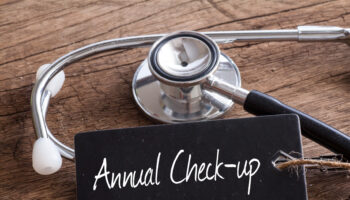By: Barbara Bredell-Searle
As educators of young children, we ensure that the children in our care are taking care of their gums, then that baby tooth comes in and we start to focus more on their teeth as they get older. A lot of programs have adopted tooth brushing after meals to ensure that children maintain good oral health. However, as adults, are you doing the same for yourself?
As I finally talked myself into going back to the dentist after a year and a half from my past yearly check-up and deep cleaning, I could not help but wonder why it is so important we keep our oral health in check. I mean you go to the dentist for a yearly cleaning and then a six-month check-up. The dentist takes X-rays, fills a cavity if you have one, cleans and flosses your teeth and is there for other oral emergencies that may arise.
Well, after researching the Mayo Clinic and The Center for Disease Control, I am borrowing a quote from the Mayo Clinic: “Your oral health is more important than you might realize. Learn how the health of your mouth, teeth and gums can affect your general health.”
Yup, you read that statement above correctly, oral health is more than flossing, brushing our teeth and gargling with mouth wash twice a day. It can affect our health. How you say, well keep on reading:
If you take care of your mouth daily, your body’s natural defenses will keep bacteria under control. However, without proper oral hygiene, bacteria can lead to oral infections such as tooth decay and disease of the gum. Then the problems begin. Cardiovascular disease or stroke, pneumonia, arthritis, and diabetes are just some of the health issues that could affect you.
According to the Center for Disease Control and the Mayo Clinic, taking good care of your oral health begins with practicing good oral hygiene daily:
- Brush your teeth at least twice a day with a soft bristled brush, using fluoride toothpaste.
- Floss daily.
- Use mouthwash to remove food particles left after brushing and flossing.
- Eat a healthy diet and limit food with added sugar.
- Replace your toothbrush every three months or sooner if bristles are splayed or worn.
- Schedule regular dental checkups and cleaning once a year.
- Avoid tobacco use.
- Contact your dentist as soon as an oral health problem arises.
Hopefully, after reading this, you are beginning to see the importance of oral health. Saying “Cheese” in front of the camera with friends and children is so special, but the biggest part of having that smile is that you are taking care of your teeth so your dentist will not send you to a specialist due to health concerns of poor oral health.




